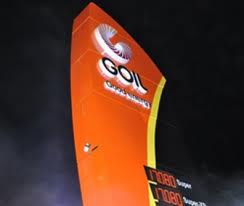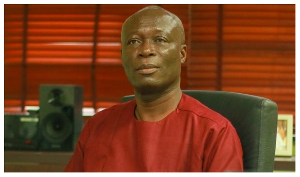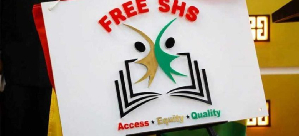Ghana Oil Company Limited (GOIL), the only indigenous downstream oil marketing company in the country has set a petroleum deregulation benchmark of constantly quoting the lowest price since the exercise started on June 16.
At the fourth consecutive de-regulation price review which spans from August 1, to August 16, GOIL has reduced the price of Petrol from GH¢ 3.46 per litre to GH¢ 3.310 per litre, and diesel from GH¢ 3.07 per litre to GH¢ 2.895 per litre.
Engen Ghana Limited is also quoting GH¢ 3.310 per litre for Petrol and GH¢ 2.895 per litre for Diesel across its 25 filling stations nationwide.
A Ghana News Agency (GNA) team monitoring the price review indicates that Total Ghana Limited has also pegged the price at GH¢ 3.358 per litre for Petrol from GH¢ 3.53 per litre and GH¢2.955 per litre for diesel also from GH¢ 3.14 at the July 16 review.
Shell Ghana Limited is also quoting GH¢ 3.430 per litre for Petrol from GH¢ 3.49 per litre and GH¢ 2.990 per litre for diesel from GH¢ 3.10 per litre.
GNA investigations indicate that other OMCs have adopted marketing price monitoring strategy to check the price of petroleum products quoted by the major OMCs before they release their prices to remain competitive.
The prices review of petroleum products is in conformity with the de-regulation of petroleum products which took effect from June 16.
The reduction was attributed to the marginal stabilisation of the local currency the cedi to other major currencies and the world crude oil price during the fourth de-regulated pricing regime for the period.
In an interview with the GNA, Mr Patrick Kwame Akpe Akorli, GOIL Managing Director, explained that consumers are reaping huge benefits from the de-regulated regime.
He said contrary to speculation that a de-regulated regime would create room for the OMCs to form a cartel to cheat consumers; “now we are all experiencing healthy industrial competition among the over 80 OMCs”.
The National Petroleum Authority (NPA) on June 16, issued a statement which was signed by the Chief Executive Officer, Mr Moses Asaga, announcing the first process towards the implementation of the petroleum product price deregulation.
The price was increased by four per cent on June 16; and on July 2 increased by 15 per cent but on July 16, the price was reduced by 14 per cent.
According to NPA, the implementation of the first stage of price deregulation would continue into subsequent pricing windows while the Authority reviews the existing legal framework of petroleum products, pricing towards a smooth implementation of the full steps of petroleum products price deregulation in Ghana.
The OMCs are also under obligations to display their ex-pump prices at their retail outlets, to allow the NPA monitor “the application of the Prescribed Petroleum Pricing Formula, to ensure that all petroleum service providers apply the formula in the right way defaulters would be duly sanctioned”.
The NPA has subsequently directed OMC and LPG Marketing Companies (LPGMCs) to submit their indicative ex-pump prices to NPA two days before every pricing window.
The indicative ex-pump prices submitted by an OMC or LPGMC would represent its maximum indicative price for the two week period – first to 15 and 16 to the end of the month.
In a directive to the OMCs, Bulk Oil Distributing Companies and other industrial stakeholders signed by Mr Jacob Amuah, NPA Technical Director for the Chief Executive and copied to the Ghana News Agency in Accra said.
The directive tagged: “Interim Guidelines for Petroleum Service Providers under-price deregulation,” tasked service providers to adhere strictly to the guidelines to ensure effective transition and smooth implementation of the price liberalisation regime.
The NPA directives also warned Petroleum Service Providers that they cannot price its ex-refinery or ex-pump price higher than the maximum indicative price set for a specific pricing window.
“However, it can revise its ex-pump prices downward within the pricing window if the Petroleum Service Provider chooses,” the statement stated.
The NPA also direct all Petroleum Service Providers to ensure that ex-pump prices of products remains the same at all its retail outlets throughout the country at any given particular period.
“By implication an OMC or LPGMA’s ex-pump price at any given time must not vary at any of its outlets across the country irrespective of the geographical location,” the statement said.
Business News of Tuesday, 4 August 2015
Source: GNA
GOIL sets petroleum deregulation price benchmark
 GOIL logo
GOIL logo
















